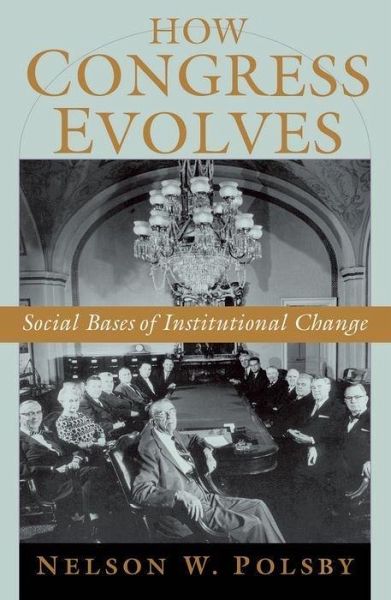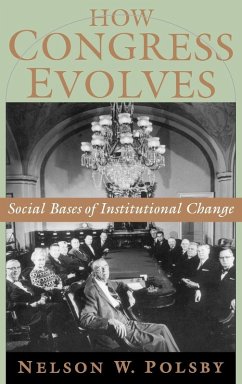
How Congress Evolves
Social Bases of Institutional Change
Versandkostenfrei!
Versandfertig in 1-2 Wochen
41,99 €
inkl. MwSt.
Weitere Ausgaben:

PAYBACK Punkte
21 °P sammeln!
In this greatly entertaining tale of one of our most august institutions, Nelson Polsby argues that among other things, from the 50's to the 90's, Congress evolved. In short, Polsby argues that air conditioning altered the demography of the southern states, which in turn changed the political parties of the South, which transformed the composition and in due course the performance of the US House of Representatives. This evolutionary process led to the House's liberalization and later to its transformation into an arena of sharp partisanship, visible among both Democrats and Republicans. How C...
In this greatly entertaining tale of one of our most august institutions, Nelson Polsby argues that among other things, from the 50's to the 90's, Congress evolved. In short, Polsby argues that air conditioning altered the demography of the southern states, which in turn changed the political parties of the South, which transformed the composition and in due course the performance of the US House of Representatives. This evolutionary process led to the House's liberalization and later to its transformation into an arena of sharp partisanship, visible among both Democrats and Republicans. How Congress Evolves breathes new life into the dusty corners of institutional history, and offers a unique explanation for important transformations in the congressional environment.













